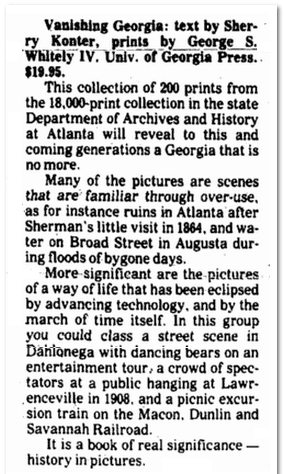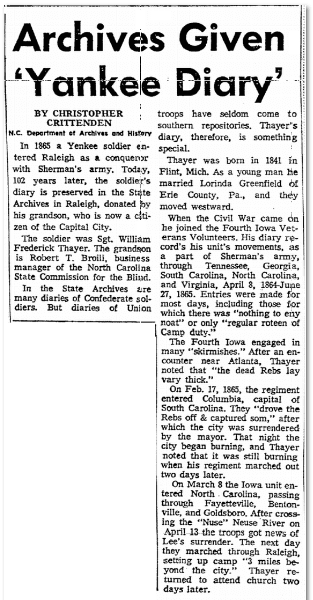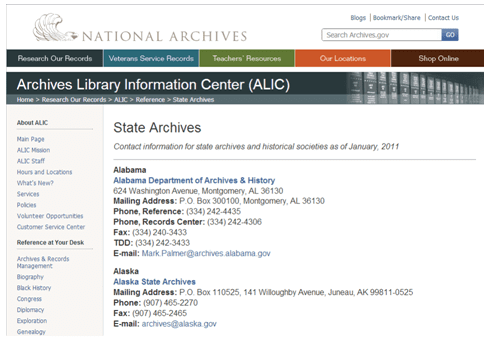Introduction: Mary Harrell-Sesniak is a genealogist, author and editor with a strong technology background. In this guest blog post, Mary talks about how valuable state archives can be for your family history research, and describes how to access them.
If you’re looking for an exciting resource to help with your genealogical research, I recommend visiting your State Archives as soon as possible. Although archives are supported by open records laws, they are vulnerable to budget cuts—so don’t take state archival research for granted, as shown by the close call that recently happened to Georgia’s state archives.
On 13 September 2012 the governor of Georgia made this announcement:
“The Governor’s Office of Planning and Budget has instructed the Office of the Secretary of State to further reduce its budget for AFY13 and FY14 by 3% ($732,626)…To meet the required cuts, it is with great remorse that I [Gov. Nathan Deal] have to announce, effective November 1, 2012, the Georgia State Archives located in Morrow, GA, will be closed to the public.”
After this state government announcement, the Georgia archival research community provided a strong response, including letters, petitions and a FaceBook page at www.facebook.com/GeorgiansAgainstClosingStateArchives.
Faced with this public opposition, the governor made an online announcement using Twitter on 19 September 2012:
“In proclaiming Georgia Archives Month today, @GovernorDeal said he’d find a way to keep the archives open to the public.”
The archival research community welcomed this follow-up announcement from the Office of the Governor on 18 October 2012:
“Gov. Nathan Deal and Secretary of State Brian Kemp announced today that the state will restore $125,000 to Kemp’s budget to keep the Georgia State Archives open to Georgians for the remainder of the budget year…Georgia’s Archives are a showcase of our state’s rich history and a source of great pride…I worked quickly with my budget office and Secretary Kemp to ensure that Georgians can continue to come to Morrow to study and view the important artifacts kept there.”

This story has a happy ending, but based upon an informal survey I took at a genealogy presentation on State Archives, only about 20% of family historians have ever visited one in person, or online. This is surprising, since state archives accessions include a vast assortment of genealogical documents, such as:
- census records (state)
- diaries (ex. Civil War)
- oral histories
- grave registrations
- land records
- military records
- naturalization
- probate
- vital records and certificates (birth, marriage, death)
- Works Progress Administration surveys

In addition to genealogical resources, state archives typically house historical state documents, state constitutions, governor’s papers, historical prints, and artifacts such as flags or maps.
The focus of state collections is similar to that of the National Archives and Records Administration (NARA), whose website is www.archives.gov.
NARA provides a summary webpage with contact information and links to all state archives at www.archives.gov/research/alic/reference/state-archives.html.

As this is a hard-to-remember URL, I generally locate the page by entering “National Archives State Archives” into a search engine.
Many state archives’ online sites contain databases and digital images. Some highlights include:
- Missouri: Anti-Slavery Alphabet, Maps, Confederate Pension Applications, World War I Statement of Service Cards, etc.
- Pennsylvania: Land Records, Maps, Military Files, Patent Indexes, etc.
- Texas: digitized records pertaining to the Republic of Texas including Republic Claims, Confederate Pensions and Passports, etc.
- Virginia: Revolutionary War records (Bounty Warrants, Rejected Claims, Pensions), Cohabitation Registers (African American), Works Progress Administration Life Histories, etc.
Tips for Online Archival Research
- Since every website is uniquely designed, keep a log of the steps taken in locating an online resource.
- To find related digital projects, search the Library of Congress website for Memory Project websites, or visit www.loc.gov/rr/program/bib/statememory/.
- Some digital projects partner with others, such as the Mountain West Digital Library for Utah, Nevada, Idaho, and Hawaii.
Tips for Visiting State Archives in Person (generalities, as each location is unique)
- Many archives partner with libraries, where you will have access to extended resources.
- Some state archives offer access to popular subscription databases.
- When requesting to examine original documents, expect to register with a picture id., which may be valid for one year.
- Prior to entering the archival document room, you may be required to store personal items in a locker, except for paper and pencil.
- Options for obtaining copies may be available, although some allow the use of digital camera photography (without flash).
- Be respectful of all historical items, and keep items in the original order.
